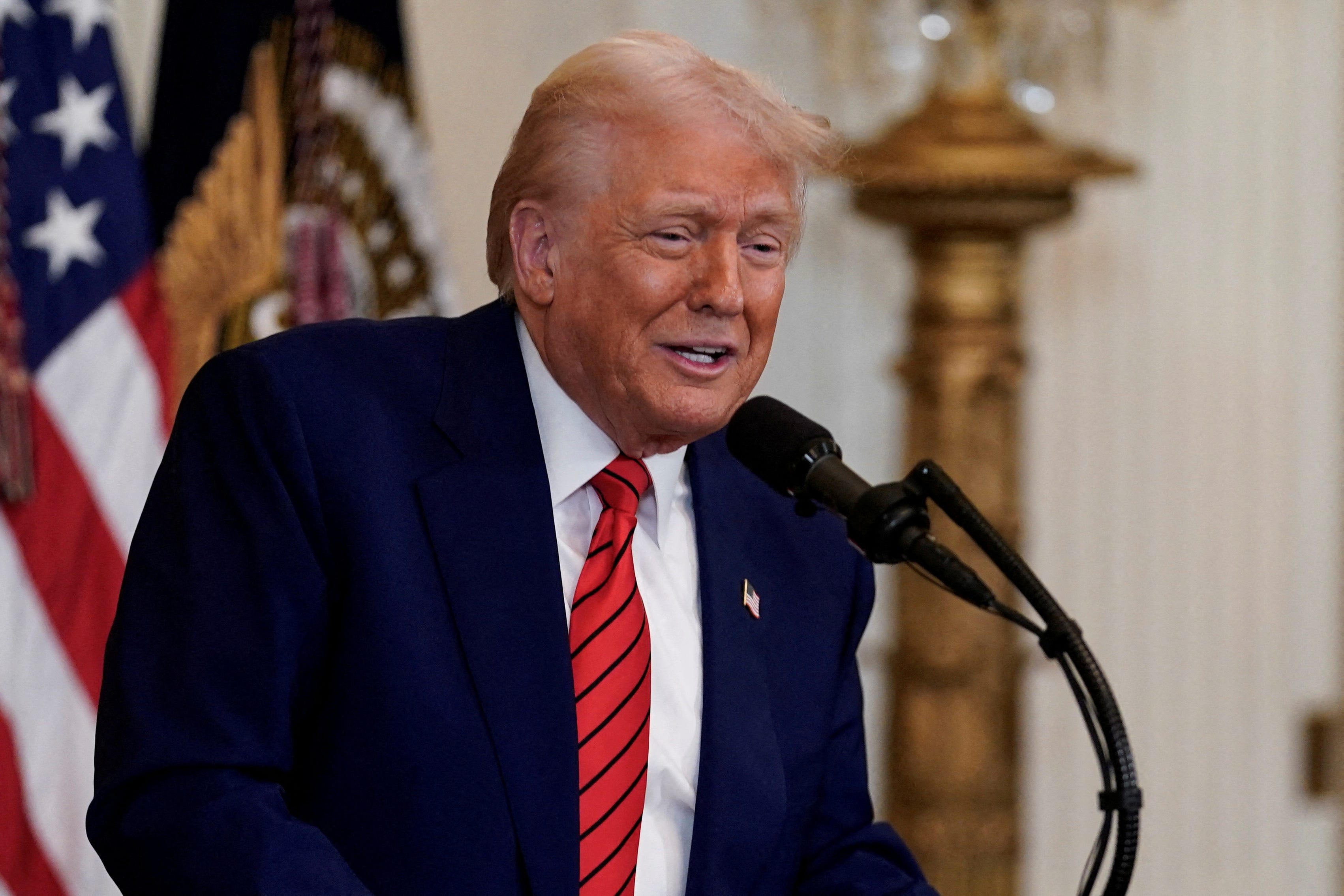Despite the U.S. Constitution barring a third presidential term, Donald Trump is openly flirting with the idea, igniting support from allies and alarm from critics who accuse him of overreaching executive power.
Barred from running for a third term, Trump keeps talking about it

Key Takeaways:
- Trump is hinting at running for a third term despite constitutional limitations.
- Supporters are pushing to amend the Constitution to allow another run.
- Steve Bannon is advocating for Trump’s future candidacy in 2028.
- Critics accuse Trump of attempting an unconstitutional power expansion.
- A controversial Napoleon quote by Trump has sparked fears of authoritarianism.
Trump Toys with a Third Term
Donald Trump, undeterred by constitutional restrictions, is openly suggesting the possibility of running for a third term as President of the United States. During a Black History Month event at the White House on Thursday, Trump stirred speculation by posing the question to attendees: “Should I run again? You tell me.” The audience responded with enthusiastic chants of “four more years,” prompting Trump to laugh and predict, “You’re going to see that tonight… on television.”
Constitutional Limits and Trump’s Ambiguity
The 22nd Amendment to the U.S. Constitution clearly states, “No person shall be elected to the office of the President more than twice.” Despite this, Trump has been ambiguous about his intentions. In a speech to Republican governors later that day, he acknowledged being told he couldn’t run again but added, “I’m not sure.” He hinted at redirecting funds raised during the transition to others, saying, “I can’t spend it on me,” implying limitations on mounting another campaign.
Supporters Mobilize for Change
In response to Trump’s hints, some supporters are taking legislative action. Representative Andy Ogles, a Republican from Tennessee, has introduced a resolution to amend the Constitution to allow Trump to seek a third term. This effort, known as the “Third Term Project,” gained traction at the Conservative Political Action Conference (CPAC) in Washington D.C. this week, where supporters promoted the proposal enthusiastically.
Bannon’s Push for 2028
Steve Bannon, Trump’s former White House adviser and a prominent conservative voice, is championing the idea of a future Trump candidacy. Speaking at CPAC, Bannon declared, “The future of MAGA is Donald Trump! We want Trump in ’28. That’s what they can’t stand. A man like Trump comes along only once or twice in the country’s history. We want Trump!” Bannon’s call to action underscores the dedication of Trump’s base to see him return to the nation’s highest office.
Criticism and Concerns Over Executive Power
Trump’s musings about a third term have drawn sharp criticism from opponents who view his actions as a threat to constitutional norms. Critics accuse him of attempting an unconstitutional power grab, pointing to recent efforts to expand executive authority and sidestep checks from other branches of government. They specifically highlight incidents where Trump has “usurped the spending authority of Congress,” raising alarms about the erosion of legislative power.
Adding to the controversy, Trump posted a provocative statement on social media: “He who saves his Country does not violate any Law,” attributing it to Napoleon Bonaparte, the French military leader who declared himself emperor. The post intensified concerns about Trump’s intentions. Senator Adam Schiff, a Democrat from California, responded on X (formerly known as Twitter), stating, “Spoken like a true dictator,” encapsulating the fears of many critics.
Historical Context of Term Limits
Presidential term limits were codified with the 22nd Amendment in 1951, following Franklin D. Roosevelt’s four-term presidency. The amendment was designed to prevent any one individual from holding excessive power and to uphold the democratic principle of regular leadership change. Trump’s consideration of a third term challenges this long-standing precedent.
Conclusion: The Ongoing Debate
As Trump continues to hint at defying constitutional constraints, the nation watches closely. His suggestions have ignited a complex debate over the balance of power, the rigidity of constitutional law, and the future of American democracy. Whether these hints will materialize into a serious bid remains uncertain, but the discussions they have sparked are reshaping the political landscape.
Contributing: Reuters











